SUMMARY
This is AI generated summarization, which may have errors. For context, always refer to the full article.
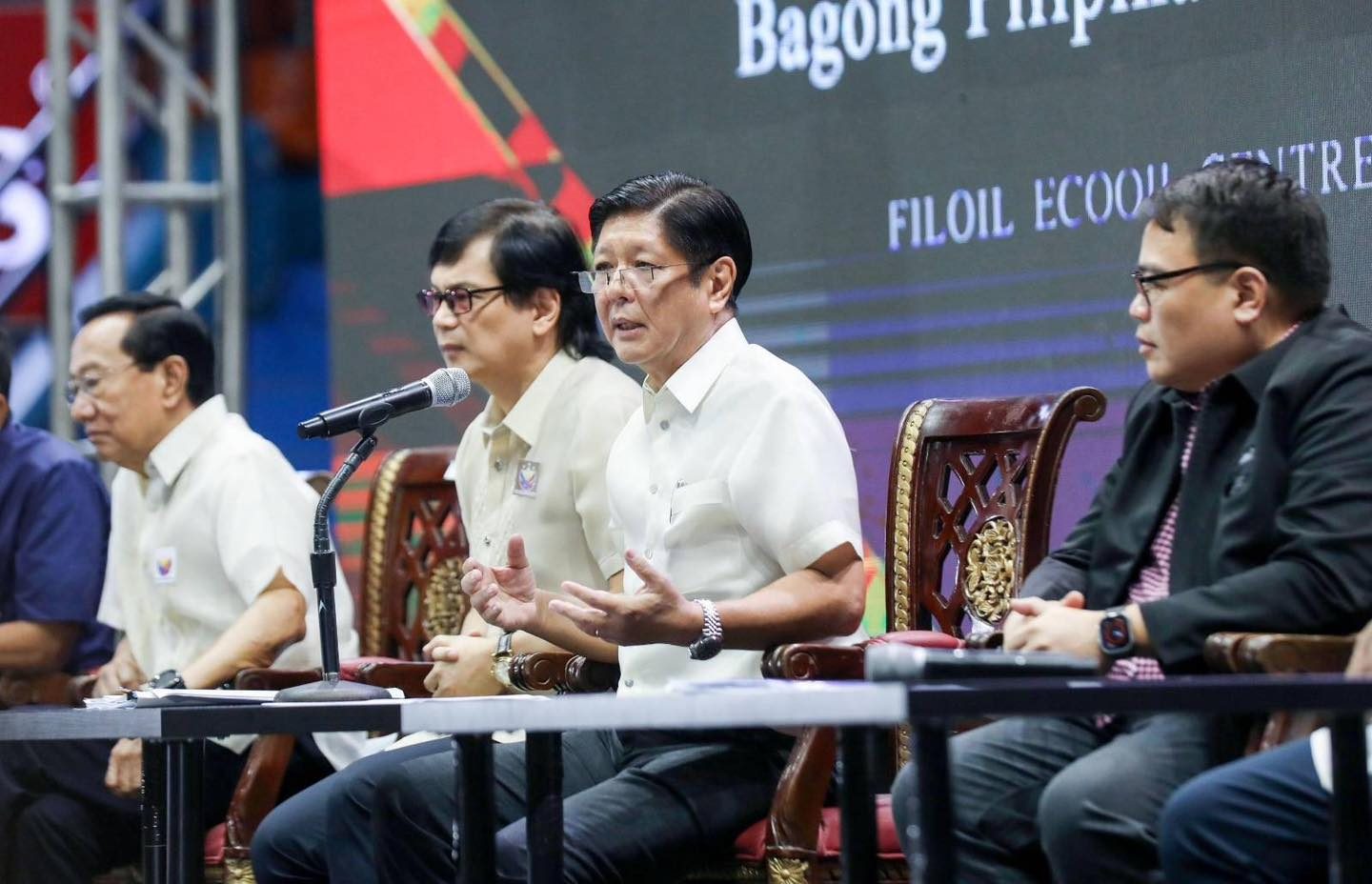
MANILA, Philippines – President Ferdinand Marcos Jr. led a public town hall on Metro Manila’s traffic woes on Wednesday, April 10, affirming his resolve to address the transportation mess in the capital region, but advocacy groups that his administration failed to invite were left wanting.
The two-hour event saw the President listen to the accomplishment reports and proposals of his Cabinet secretaries and answer questions posed by select participants.
“The solution really is to improve our public transport system. If we don’t do anything, the number of vehicles plying Manila will just continue to increase,” Marcos said in Filipino.
When asked about government efforts on that subject, Marcos leaned heavily into his administration’s railway projects, providing the audience with their completion rate. These include the following:
- North-South commuter railway project (Tutuban to Malolos): 61%
- North-South commuter railway extension project (Malolos to Clark): 56%
- North-South Commuter railway extension (Manila to Clark): 38%
- Metro Manila subway project: 41%
- LRT-1 Cavite extension: 80%
- MRT-3 rehabilitation and maintenance: 85%
- Unified Grand Central station in Quezon City: 83%
- MRT-7 Quezon City to Bulacan: 67%
During the event, Metro Manila Development Authority (MMDA) Chairman Rolando Artes unveiled new work hours for local government offices in the National Capital Region (NCR) to avoid getting stuck in traffic during peak hours.
He also sees the utilization of Mabuhay Lanes, the setting up of more bike lanes, the repair of priority intersections, and the use of the Pasig River Ferry System as alternatives to alleviating the traffic situation in Metro Manila.
Meanwhile, Public Works Secretary Manuel Bonoan highlighted big-ticket infrastructure projects such as skyways, expressways, and bridges.
Hit and miss

In Rappler’s Be the Good episode, panelists from civil society welcomed the President’s overarching message of wanting to improve Filipinos’ commuting experience, but they were unimpressed once they zoomed in on the specifics of their proposals.
“Railways are very important… but we cannot put all our eggs in the railway basket,” Robie Siy of Move as One Coalition said. “Today, looking at our budget, 98% of our public transport budget is going into rail [but] rail takes a long time and is only limited in terms of its influence.”
He added, “We need to increase the capacity and quality of our road-based public transport.”
The group was also concerned with the government’s seeming prioritization of expressways and tollways.
“[These projects are] notably more vehicle-oriented rather than people-oriented in terms of mobility. And these are also very, very expensive projects that induce more demand for private vehicle use and these also don’t take into consideration public transport vehicles such as buses, jeepneys, tricycles,” said Cola Cobarrubias, also from the Move as One Coalition.
There was no mention of transport advocacy groups’ proposal to enable service contracting for thousands of jeepneys and buses.
The town hall also did not touch upon projects to improve the experience of pedestrians and members of vulnerable sectors.
The MMDA mentioned the setting up of more bike lanes in passing, failing to expand on the subject.
President Marcos also asserted that the consolidation deadline for public utility vehicles will not be extended after April 30. Still, there was no mention of additional financial assistance or subsidy for drivers and operators bearing the brunt of the modernization program.
Controlled open forum
President Marcos publicized the town hall in a vlog posted on his Youtube account over the weekend, urging the public to participate via the comments section.
Wednesday’s town hall was not open to the public. Government employees filled half the seats of the indoor arena in San Juan, leaving the other half empty.
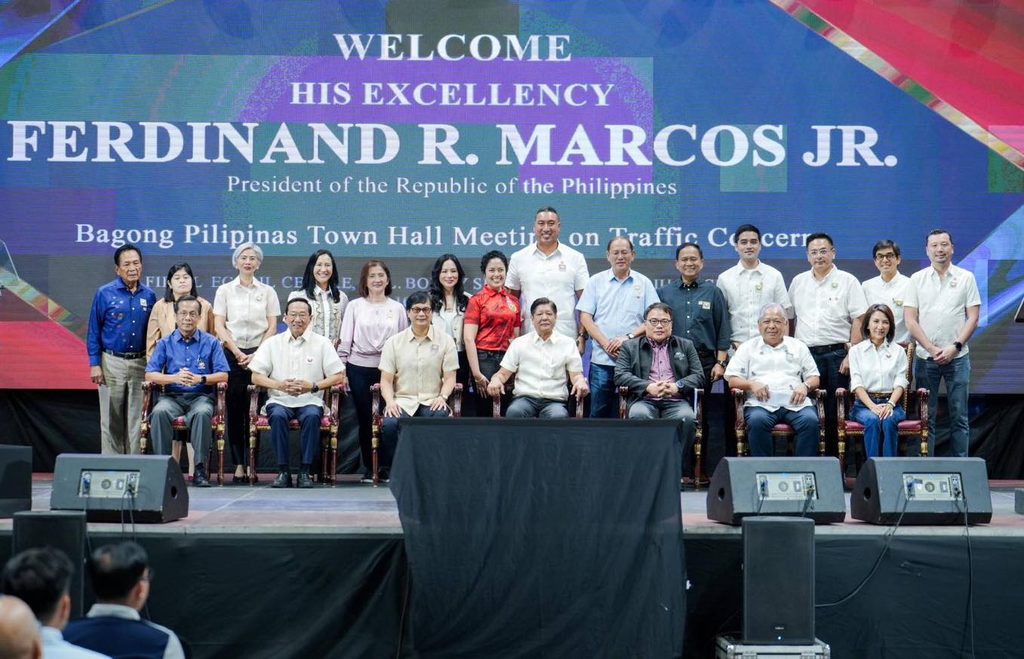
Before the event, the emcee asked the audience to submit their questions for the open forum, but the ones called were pre-selected people who were already scheduled to deliver their statements, including San Juan Mayor Francis Zamora, and representatives from Pasang Masda, Angkas, and Employers’ Confederation of the Philippines.
For AltMobility PH, it was a wasted opportunity to take advantage of a holiday to widen the reach of the town hall.
“We were hoping that it would be picking up from the President’s instructions to have a comprehensive plan. But it seemed they invited the President to sit down in the traffic discussion of Metro Manila. We heard a litany of singular projects, but I failed to hear a comprehensive solution,” AltMobility PH director Ira Cruz said.
Move as One, AltMobility PH, and Advocates for Inclusive Transport, Make It Safer Movement, alongside PUV groups Piston and Manibela, were among those groups that did not receive an invitation to the town hall, despite being constant talking heads on transportation issues.
“We’re not there. I would like to think that we’re the usual suspects that are invited to the Senate, to Congress, to technical working groups, to a certain extent, we remain relevant to the conversation,” he said. “Ordinary commuters are not available.”
“It cannot continue in this format. It’s not enough. It’s not a conversation, it’s one speech after another,” he added. – Rappler.com
Add a comment
How does this make you feel?
![[In This Economy] Marcos’ POGO ban is popular, but will it work?](https://www.rappler.com/tachyon/2024/07/thought-leaders-marcos-pogo-ban.jpg?resize=257%2C257&crop=255px%2C0px%2C720px%2C720px)
![[Rappler Investigates] POGOs no-go as Typhoon Carina exits](https://www.rappler.com/tachyon/2024/07/newsletter-graphics-carina-pogo.jpg?resize=257%2C257&crop=424px%2C0px%2C1080px%2C1080px)





![[Just Saying] SONA 2024: Some disturbing points](https://www.rappler.com/tachyon/2024/07/TL-marcos-sona-points-july-23-2024.jpg?resize=257%2C257&crop=335px%2C0px%2C720px%2C720px)


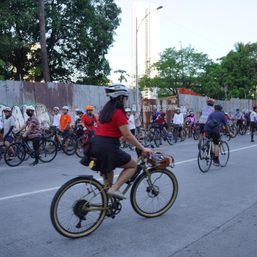
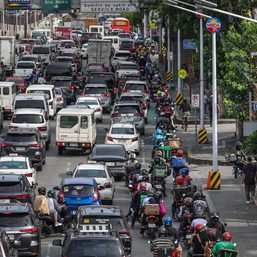
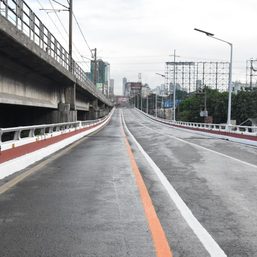




![[Under 3 Minutes] When will we see modern jeepneys on the road?](https://www.rappler.com/tachyon/2024/04/francisco-motors-modern-jeepney-prototype-1.jpg?resize=257%2C257&crop=590px%2C0px%2C1012px%2C1012px)
There are no comments yet. Add your comment to start the conversation.